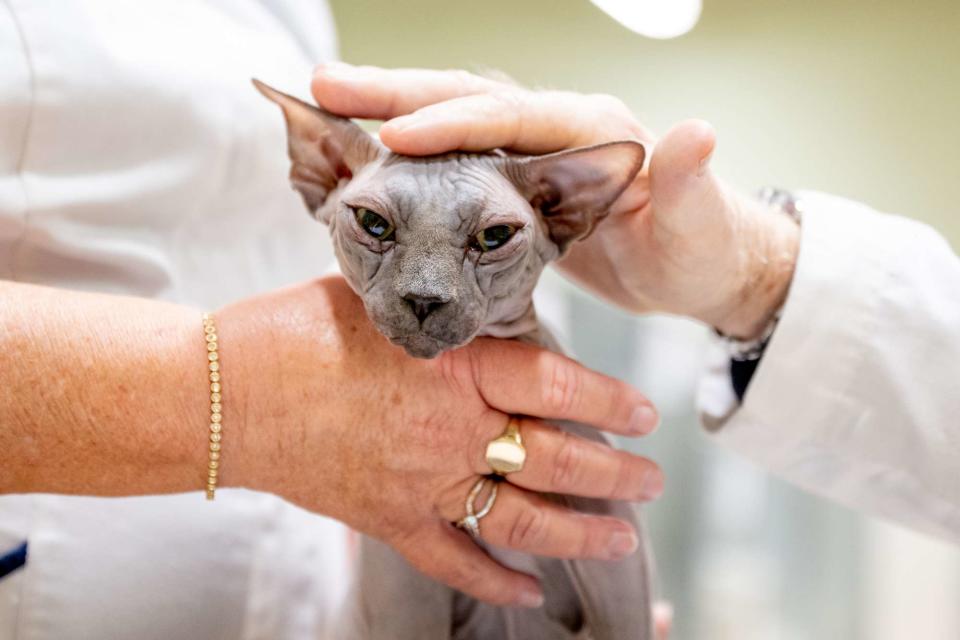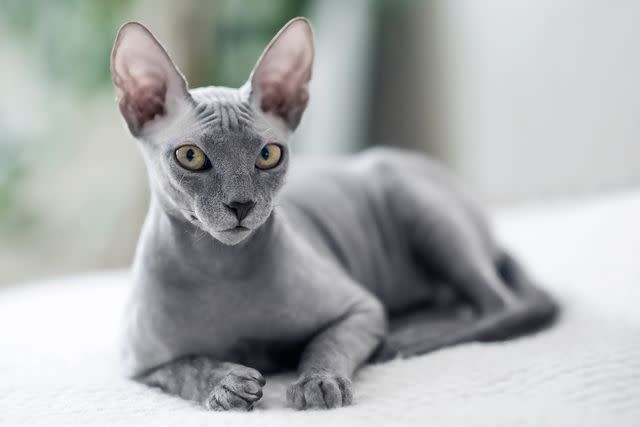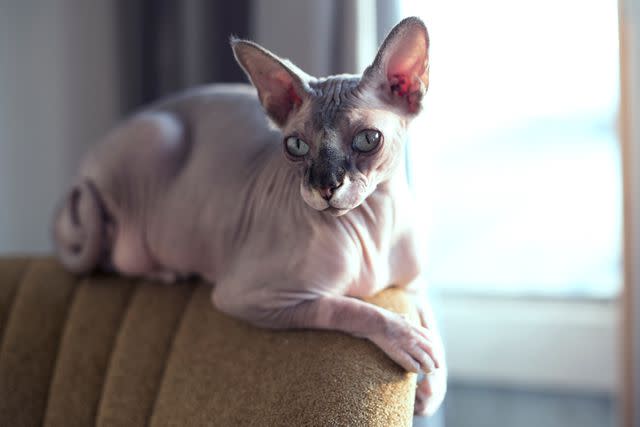Sphynx Cats Have the Lowest Life Expectancy of Domestic Feline Breeds, Study Finds
The cat breed lives for an average of 6.7 years after their first year of life as a kitten, researchers said

Shirlaine Forrest/WireImage
Sphynx catSphynx cats don't live as long as other domestic feline breeds, according to a new study.
Earlier this week, researchers from the Royal Veterinary College (RVC) and the National Chung Hsing University in Taiwan published work in the Journal of Feline Medicine and Surgery, which found that the cat breed lives for an average of 6.7 years after their first year of life as a kitten.
Burmese and Birman cats have the highest life expectancy after their first year of life (14.4 years), followed by crossbreed cats, which typically live for another 11.9 years, as compared to purebred cats, who instead live for another 10.4 years. (88% of cats make up crossbreed, per the study.)
Siamese cats were next with a life expectancy of 11.7 years after their first year of life, followed by Persian cats (10.9 years), Ragdoll cats (10.3 years), Norwegian forest cats (10.0 years), Maine coon cats (9.7 years), Russian cats (9.7 years), British cats (9.6 years) and Bengal cats (8.5 years).
Never miss a story — sign up for PEOPLE's free daily newsletter to stay up-to-date on the best of what PEOPLE has to offer, from celebrity news to compelling human interest stories.

Getty
Sphynx catRelated: WATCH: Scammer Is Shaving Kittens and Selling Them as Expensive, Exotic Hairless Cats in Canada
Researchers calculated the average lifespan for different feline types by using data from 7,936 veterinary-registered cats in the United Kingdom that died between Jan. 1, 2019, and March 31, 2021.
The study found that the average life expectancy for cats after their first year of life is 11.7 years overall, with a figure higher, 12.5 years, for females and a lower one, 11.2 years, for males.
Researchers also found that cats that have not been neutered have a shortened life expectancy. They estimate this is because felines are more likely to have the procedure done as they get older.
Cats with a median body weight, the study also found, have a longer lifespan than those that weigh more or less.

Getty
Sphynx catRelated: Scowling Sphynx Cat Loki Might Be the Grumpiest Feline on Instagram
In a statement, Dr. Dan O’Neill, a co-author of the study from the RVC, said, per The Guardian, “Essentially what we’re doing is we’re giving some level of statistical certainty, where previously it was just guesswork."
“Essentially this is now giving the power to the public,” he added. “If somebody’s priority is they want a cat that is going to defer death for as long as possible, on average, we now have the evidence to say [get a] female and crossbred."
For more People news, make sure to sign up for our newsletter!
Read the original article on People.


